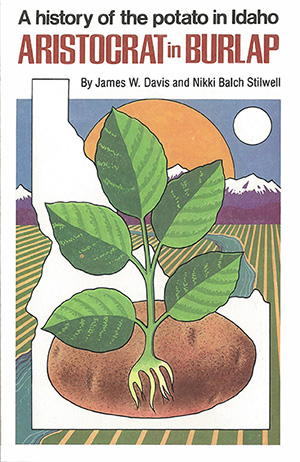The third factor that contributes to the quality of potatoes grown in Idaho is the nature of the soil itself. Potatoes seem to grow better in a light soil, like volcanic-ash conditions that exist in Idaho's potato growing areas. Not only is the light soil conducive to good potato culture, but a rich supply of trace minerals in the volcanic soil seems to be necessary for successful potato production.
It has never been determined exactly what the soil contains that makes an outstandingly successful potato crop. When new land is brought under cultivation after centuries of "desert" conditions where sagebrush, bitterbrush, and a variety of grasses and forbes have been its only production, the first year usually produces an exceptionally fine crop. These desert soils are hardly ever high in nitrogen, and it is necessary to supply the needed nitrogen with chemical fertilizers. Phosphate is also usually added and in some areas, potash seems to produce added yields and quality. These three primary plant foods are replenishable at required rates, but it never seems possible to duplicate the first year crop when the potatoes are planted for the first time in desert soil and all of the trace minerals and native organisms are present.
The net result of Idaho growing conditions is a potato that is high in solids content, has a white, mealy texture when cooked and a pleasing potato flavor.
Although potatoes can be grown in both alkaline and acidic soils, the Idaho farmland is predominantly alkaline. Although potatoes tolerate the alkaline soil balance quite well, it creates another problem-potato scab. It was in fact potato scab that made the Russet Burbank popular in Idaho and in the opinions of some people, the savior of the Idaho potato industry. Since the scab organism grows and prospers only in alkaline soils, in production areas where soils are predominantly acidic, scab is not a problem. It had become a problem of considerable magnitude in Idaho in the early 1900s when farmers were growing Rural New Yorker, Early Rose, Cobbler, Russet Rural, Idaho Rural, and Bliss Triumph varieties. The scab organism stays in the soil and, when tubers are infected, they are worthless for food purposes.
It is not known for sure who brought the first quantities of Sweet's Russeted Burbank potatoes to Idaho. It seems instead that several small quantities made their appearance almost simultaneously and various Idaho growers tried the new variety and found that it had considerable resistance to potato scab as well as other diseases.

